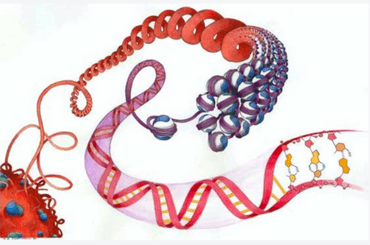In its 2015 “Year-in-Review”, Science News declared the “Epigenome” has made its “debut”. Why? Because epigenetic alterations; including acetylation, phosphorylation and methylation have been found to be a means by which genes can be regulated post translation.
While not new, numerous clinical studies have recently been published highlighting the important role methylation plays in epigenetic alterations.

Published findings include:
- Mutations in the DNA methyltransferase 3A gene (DNMT3A) in transgenic mice supports clinical findings of clonal dominance occurring in aging populations.
- A poor prognosis in acute myeloid leukemia (AML) is associated with DNMT3A mutations.
- Presence of DNMT3A mutations is associated with poor prognosis in adult T-cell acute lymphoblastic leukemia (T-ALL).
- Hypomethylation (due to loss of the enzymatic activity in the DNMTAs) and Hypermethylation (specifically in the promoter region) have both been observed in malignances.
As we look deeper into Hypermethylation, we find it is relevant not only in the induction and maintenance of malignancy, but also as a useful biomarker to identify patients with early stage disease. For example, when the hypermethylation is found in the promoter region of DNA repair genes (MLH1, MGMT, CDKN2A, BRCAs and DAPK1) it has been found in colon, breast, liver, pancreatic and brain cancer. In addition, the methylation status when found in conjunction with other biomarkers has been considered a useful tool in non-invasive screening of patients for colon cancer. Diagnostically, methylation patterns in the promoter of MLH1 can help to identify patients with “sporadic” colon cancer from those with “hereditary” cancer (Lynch Syndrome).
To increase compliance, combining a liquid biopsy, usually a blood sample with analysis of DNA methylation patterns and additional cancer specific biomarkers would be an efficient and sensitive adjunct-diagnostic tool for colon cancer. Given the significant number of patients unwilling to undergo a routine colonoscopy, this testing could prove useful in the fight against colon cancer.
Initially, MD Biosciences developed a methylation status assay for tissue used for cancer monitoring in both human clinical and preclinical studies. Today, we are exploring the utility of blood cfDNA as the sample matrix of choice for methylation biomarkers. This sample matrix would be an addition to our current assays for protein and gene expression across multiple sample types, and will be released upon further validation.







